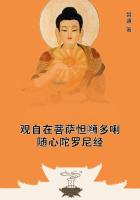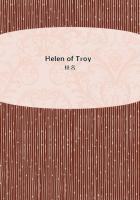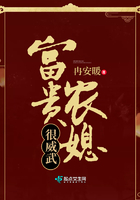THE next morning I met Lady Glenmire and Miss Pole setting out on a long walk to find some old woman who was famous in the neighbourhood for her skill in knitting woollen stockings. Miss Pole said to me, with a smile half-kindly and half-contemptuous upon her countenance, "I have been just telling Lady Glenmire of our poor friend Mrs Forrester, and her terror of ghosts. It comes from living so much alone, and listening to the bug-a-boo stories of that Jenny of hers." She was so calm and so much above superstitious fears herself that I was almost ashamed to say how glad I had been of her Headingley Causeway proposition the night before, and turned off the conversation to something else.
In the afternoon Miss Pole called on Miss Matty to tell her of the adventure - the real adventure they had met with on their morning's walk. They had been perplexed about the exact path which they were to take across the fields in order to find the knitting old woman, and had stopped to inquire at a little wayside public-house, standing on the high road to London, about three miles from Cranford. The good woman had asked them to sit down and rest themselves while she fetched her husband, who could direct them better than she could; and, while they were sitting in the sanded parlour, a little girl came in. They thought that she belonged to the landlady, and began some trifling conversation with her; but, on Mrs Roberts's return, she told them that the little thing was the only child of a couple who were staying in the house. And then she began a long story, out of which Lady Glenmire and Miss Pole could only gather one or two decided facts, which were that, about six weeks ago, a light spring-cart had broken down just before their door, in which there were two men, one woman, and this child.
One of the men was seriously hurt - no bones broken, only "shaken," the landlady called it; but he had probably sustained some severe internal injury, for he had languished in their house ever since, attended by his wife, the mother of this little girl. Miss Pole had asked what he was, what he looked like. And Mrs Roberts had made answer that he was not like a gentleman, nor yet like a common person; if it had not been that he and his wife were such decent, quiet people, she could almost have thought he was a mountebank, or something of that kind, for they had a great box in the cart, full of she did not know what. She had helped to unpack it, and take out their linen and clothes, when the other man - his twin-brother, she believed he was - had gone off with the horse and cart.
Miss Pole had begun to have her suspicions at this point, and expressed her idea that it was rather strange that the box and cart and horse and all should have disappeared; but good Mrs Roberts seemed to have become quite indignant at Miss Pole's implied suggestion; in fact, Miss Pole said she was as angry as if Miss Pole had told her that she herself was a swindler. As the best way of convincing the ladies, she bethought her of begging them to see the wife; and, as Miss Pole said, there was no doubting the honest, worn, bronzed face of the woman, who at the first tender word from Lady Glenmire, burst into tears, which she was too weak to check until some word from the landlady made her swallow down her sobs, in order that she might testify to the Christian kindness shown by Mr and Mrs Roberts. Miss Pole came round with a swing to as vehement a belief in the sorrowful tale as she had been sceptical before; and, as a proof of this, her energy in the poor sufferer's behalf was nothing daunted when she found out that he, and no other, was our Signor Brunoni, to whom all Cranford had been attributing all manner of evil this six weeks past! Yes! his wife said his proper name was Samuel Brown - "Sam," she called him - but to the last we preferred calling him "the Signor"; it sounded so much better.
The end of their conversation with the Signora Brunoni was that it was agreed that he should be placed under medical advice, and for any expense incurred in procuring this Lady Glenmire promised to hold herself responsible, and had accordingly gone to Mr Hoggins to beg him to ride over to the "Rising Sun" that very afternoon, and examine into the signor's real state; and, as Miss Pole said, if it was desirable to remove him to Cranford to be more immediately under Mr Hoggins's eye, she would undertake to see for lodgings and arrange about the rent. Mrs Roberts had been as kind as could be all throughout, but it was evident that their long residence there had been a slight inconvenience.
Before Miss Pole left us, Miss Matty and I were as full of the morning's adventure as she was. We talked about it all the evening, turning it in every possible light, and we went to bed anxious for the morning, when we should surely hear from someone what Mr Hoggins thought and recommended; for, as Miss Matty observed, though Mr Hoggins did say "Jack's up," "a fig for his heels," and called Preference "Pref." she believed he was a very worthy man and a very clever surgeon. Indeed, we were rather proud of our doctor at Cranford, as a doctor. We often wished, when we heard of Queen Adelaide or the Duke of Wellington being ill, that they would send for Mr Hoggins; but, on consideration, we were rather glad they did not, for, if we were ailing, what should we do if Mr Hoggins had been appointed physician-in-ordinary to the Royal Family? As a surgeon we were proud of him; but as a man - or rather, I should say, as a gentleman - we could only shake our heads over his name and himself, and wished that he had read Lord Chesterfield's Letters in the days when his manners were susceptible of improvement. Nevertheless, we all regarded his dictum in the signor's case as infallible, and when he said that with care and attention he might rally, we had no more fear for him.














